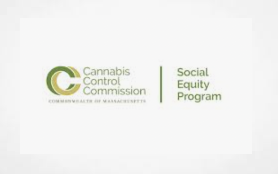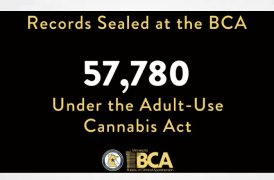Header Image: Samantha Marinello, Study Author
Here’s their press release
A new study from the University of Illinois Chicago School of Public Health used death certificate data to compare mortality rates in states that legalized recreational cannabis dispensaries with states that only provided access to medical cannabis.
The UIC researchers found that there was a substantial increase in crash fatalities in four of the seven states used in the study with legalized recreational markets and that, on average, recreational markets were associated with a 10% increase in motor vehicle accident deaths.
Samantha Marinello, PhD Health Policy and Administration ’21 and MS in Biostatistics ’17, said the findings suggest that it may be beneficial for states with legal recreational cannabis to invest in policies and public health initiatives to mitigate this potential harm and build awareness of the dangers of driving under the influence.
“To see a 10 percent increase in motor vehicle accident deaths associated with recreational markets is concerning. Previous studies have found cannabis impairs driving ability and that driving while high is fairly common among regular cannabis users,” said Marinello, who is also a postdoctoral research associate with the division of health policy and administration at the UIC School of Public Health.
For the analysis, Marinello and Lisa Powell, UIC distinguished professor and director of the division, focused on seven states that implemented legal recreational cannabis markets: Alaska, California, Colorado, Massachusetts, Nevada, Oregon and Washington. They collected data from death certificates from 2009-2019 on deaths in three areas that have previously been linked to cannabis use but are still poorly understood: motor vehicle accidents, suicide and opioid overdose.
For each cause of death, the researchers compared trends in deaths in states with legal markets with those in states that had comprehensive medical cannabis programs and similar trends in death rates prior to implementing markets.
“We didn’t want to compare states with very different mortality trends or social ideology, so we looked at each state and outcome and identified comparison states with existing medical cannabis programs and with similar pre-trends to conduct our analysis,” Marinello said.
The data revealed significant increases in crash fatalities in Colorado (16%), Oregon (22%), Alaska (20%) and California (14%).
“The results suggest that a potential unintended consequence of recreational markets is increased cannabis-intoxicated driving and crash deaths, and, hence, a potential need for policies focused on reducing driving under the influence of cannabis,” the authors write.
The researchers found no evidence that recreational markets impacted suicides, which is notable because cannabis use is associated with the development of depressive disorders and suicidality.
For opioid overdose deaths, recreational markets were associated with an 11% reduction in fatalities, on average. Across all seven states, the reduction ranged from 3% to 28%.
Marinello said that the reduction in opioid overdose fatalities is another potential area of impact that should be a factor in states considering legalization.
“This study provides evidence of both potential benefits and harms that policymakers should consider when legalizing recreational cannabis markets,” Marinello said.
“The impact of recreational cannabis markets on motor vehicle accident, suicide, and opioid overdose fatalities” is published in the journal Social Science & Medicine.
Abstract
In the U.S., an increasing number of states are legalizing regulated commercial markets for recreational cannabis, which allows private industry to produce, distribute, and sell marijuana to those 21 and older. The health impacts of these markets are not fully understood. Preliminary evidence suggests recreational markets may be associated with increased use among adults, which indicates there may be downstream health impacts on outcomes related to cannabis use. Three causes of death that are linked to cannabis use are motor vehicle accidents, suicide, and opioid overdose. Drawing on data from U.S. death certificates from 2009 to 2019, we conducted a difference-in-differences analysis to estimate the impact of recreational markets on fatalities from motor vehicle accidents, suicide, and opioid overdose in seven states: Colorado, Washington, Oregon, Alaska, Nevada, California, and Massachusetts. States with comprehensive medical cannabis programs with similar pre-trends in deaths were used as comparisons. For each outcome, a pooled estimate was generated with a meta-analysis using random effects models. The results revealed substantial increases in crash fatalities in Colorado, Oregon, Alaska, and California of 16%, 22%, 20%, and 14%, respectively. Based on estimates from all seven states, recreational markets were associated with a 10% increase in motor vehicle accident deaths, on average. This study found no evidence that recreational markets impacted suicides. Most states saw a relative reduction in opioid overdose death that ranged between 3 and 28%. On average, recreational markets were associated with an 11% reduction in opioid overdose fatalities.
Introduction
In the U.S., support for the legalization of cannabis use has risen dramatically over the last several decades. According to surveys conducted by Gallup, support rose from 12% in 1969 to 66% in 2019 (Jones, 2019). This trend has been accompanied by the implementation of liberalization policies that allow cannabis use for medical and recreational purposes in many states, although cannabis remains illegal at the federal level. In 2012, Colorado and Washington became the first jurisdictions globally to legalize recreational cannabis use as well as supply (Pacula et al., 2014). Since then, many U.S. states have followed suit; as of December 2022, 21 states and Washington D.C. have legalized recreational cannabis use. Nearly all of these states have chosen to permit a regulated commercial market. This regulated market allows a private industry to produce, distribute, and sell cannabis to those aged 21 and older.
The health effects of regulated commercial markets for recreational cannabis use (referred to hereafter as recreational markets) are not fully understood, as these policies are still relatively new. While preliminary evidence on the effect of markets on adolescent use is mixed (Bailey et al., 2020; Cerda et al., 2017, 2020; Coley et al., 2021), evidence for adults suggests that recreational markets may be associated with increased use (Cerda et al., 2020; Kerr et al., 2017, 2018). These findings indicate there may be downstream health impacts of markets on outcomes that are associated with cannabis use. According to the National Academies of Science, Engineering, and Medicine (2017) report there is substantial evidence that cannabis use is associated with increased risk of motor vehicle accidents and moderate evidence that use is linked to the development of depressive disorders and suicidality. Additionally, the report found conclusive evidence that cannabis is effective at treating chronic pain (The National Academies of Sciences, Engineering, and Medicine, 2017). Because of cannabis’s potential analgesic properties, some policymakers have argued that increasing access to cannabis can mitigate the opioid epidemic (Voelker, 2018). Multiple states have allowed health professionals to recommend cannabis over prescription opioids (Humphreys and Saitz, 2019; Voelker, 2018). Additionally, some states have added opioid use disorder (OUD) as a qualifying condition for medical cannabis access (Humphreys and Saitz, 2019; Shover et al., 2020).
Read full report
https://www.sciencedirect.com/science/article/abs/pii/S0277953623000357


















